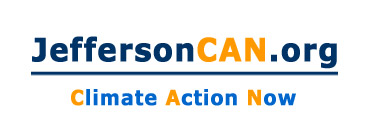This site is maintained by Local 20/20.
The most carbon-intensive aspects of our current food system are:
- Processing, packaging and transporting food
- Use of fossil fuel-based fertilizers and pesticides
- 80% of U.S. farmland is used to raise animals (grain feeds 10 times more people)
- Release of greenhouse gases (especially methane) from cattle
What’s the Carbon Footprint of Your Diet?
Though veganism or vegetarianism isn’t for everyone, many of us can reduce our meat consumption.
- Consider implementing Meatless Mondays!
- Read a BBC article to find out your diet’s carbon footprint
- Explore your “foodprint” with Foodprints Calculators
WSU Gardening Resources
A wealth of information from WSU’s Jefferson County Extension on sustainable agriculture, food preservation, organic farming methods, seed production, small farm classes. Participate in their Master Gardener Training, Plant Clinics, and farm and garden tours.
Food Coop
Port Townsend’s Food Coop features seasonal food from local growers. Specializes in organically-produced food. Offers in-store classes and informative newsletter.
Jefferson County Farmers Markets
Port Townsend Saturday Market (April-Dec), Chimacum Sundays (Jun-Oct), also Online! Find local vegetables, fruit, bread, cheese, eggs, salmon, poultry, coffee, crafts and more.
jcfmarkets.org
Chimacum Corner Farmstand
Features “food from here” – food grown or produced in the northeastern Olympic Peninsula. By selling the finest local goods, the farmstand hopes to support agricultural economy while providing the best in health, community, and eating pleasure.
chimacumcorner.com
